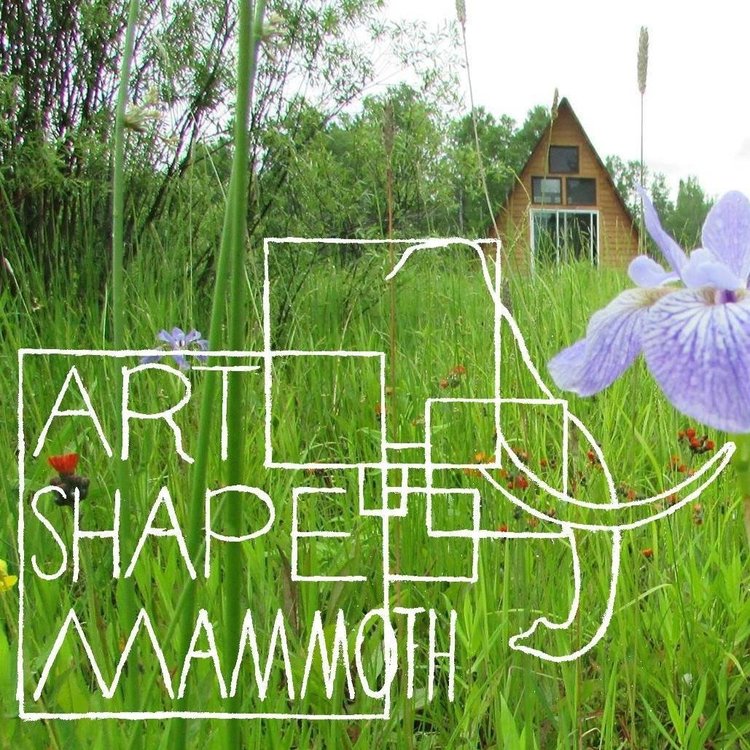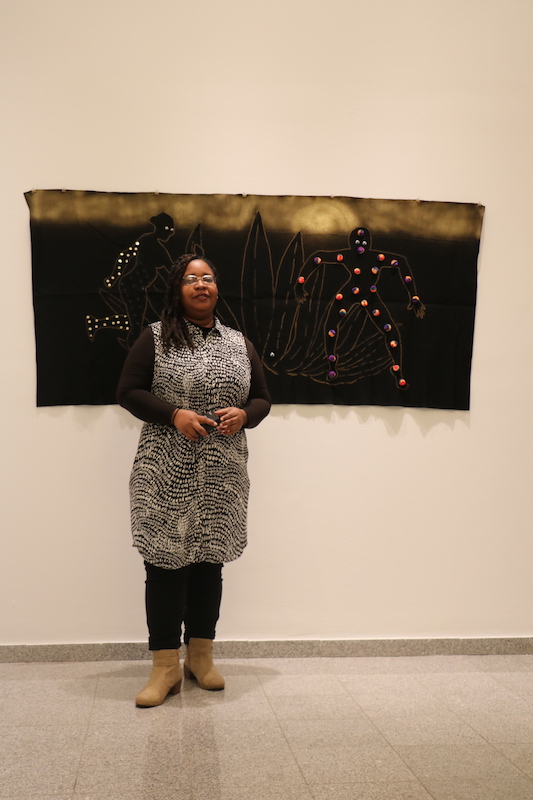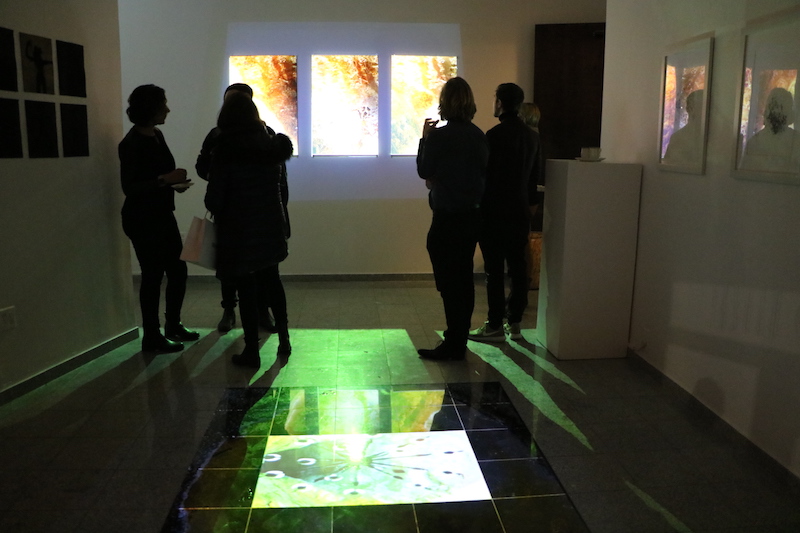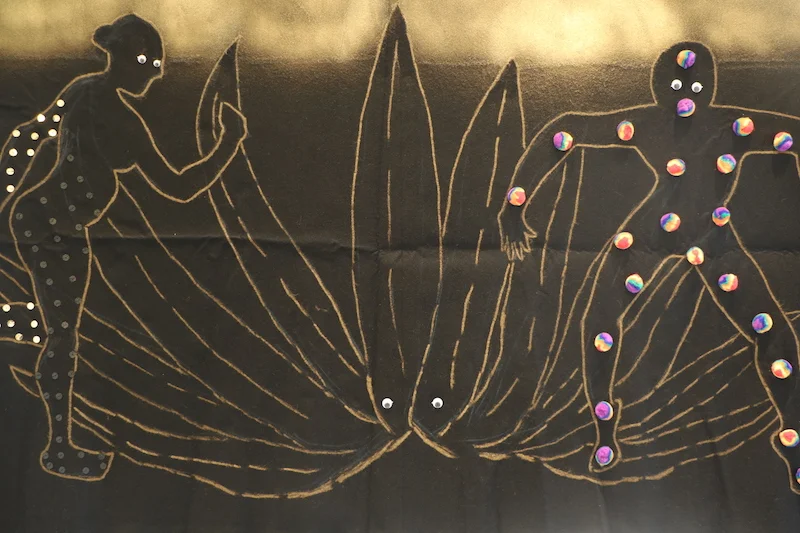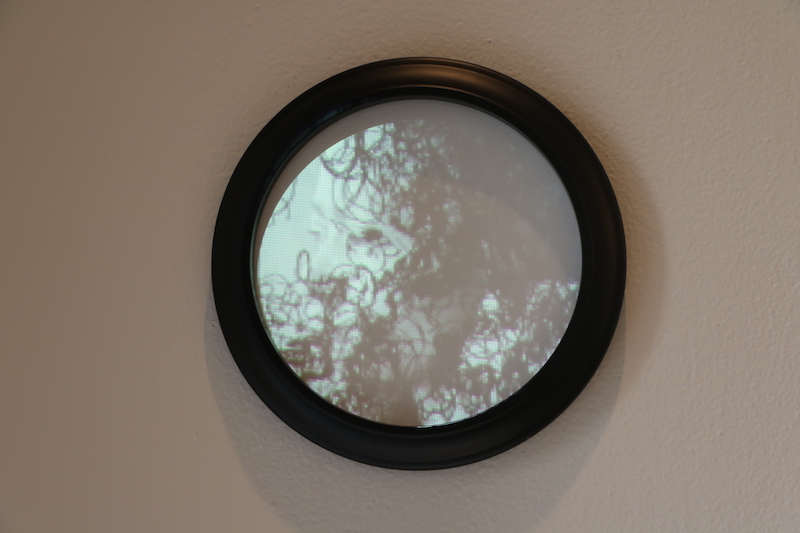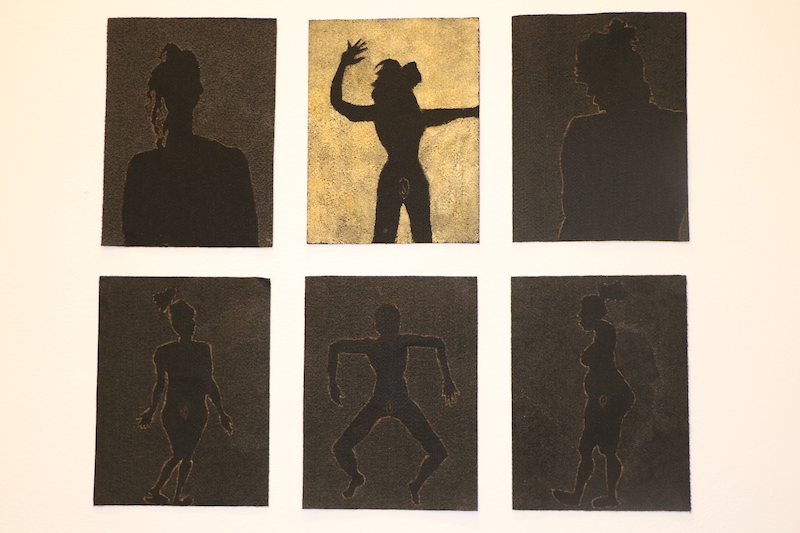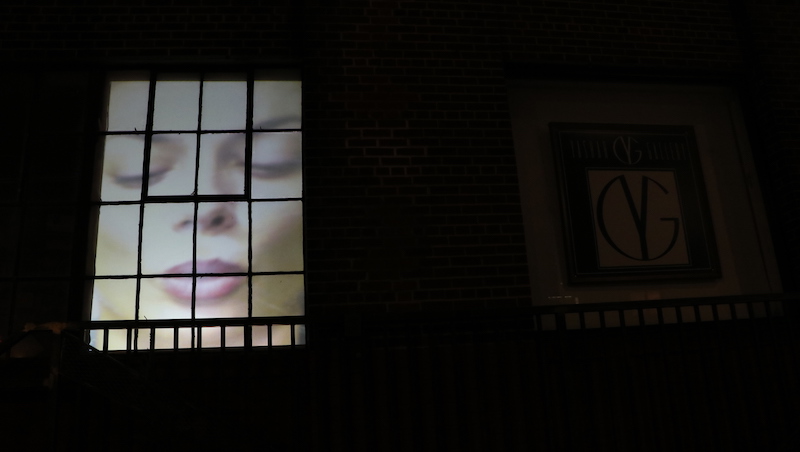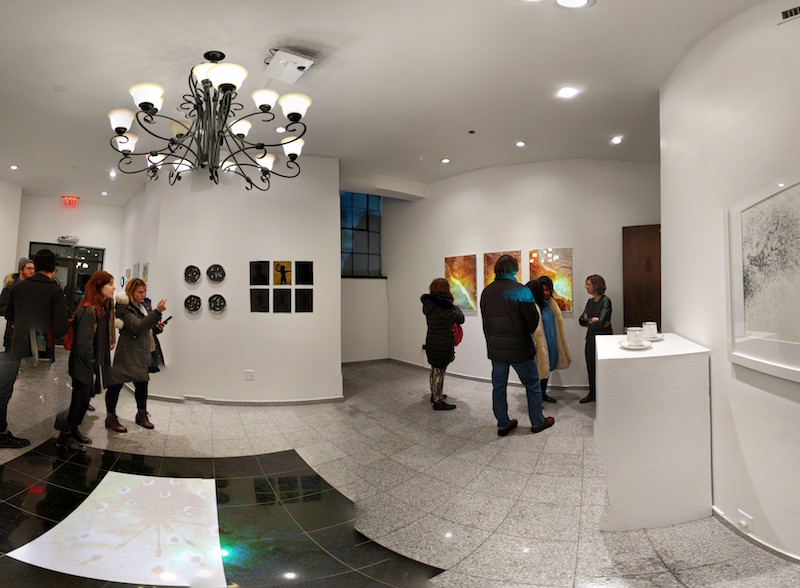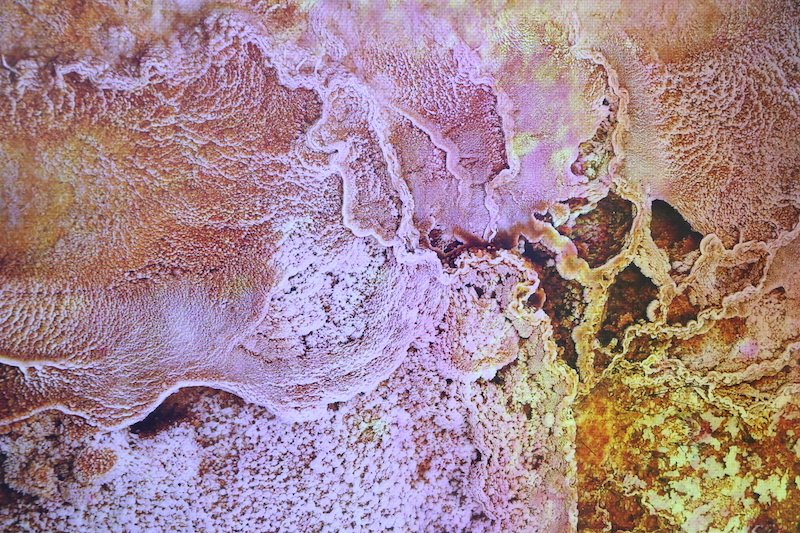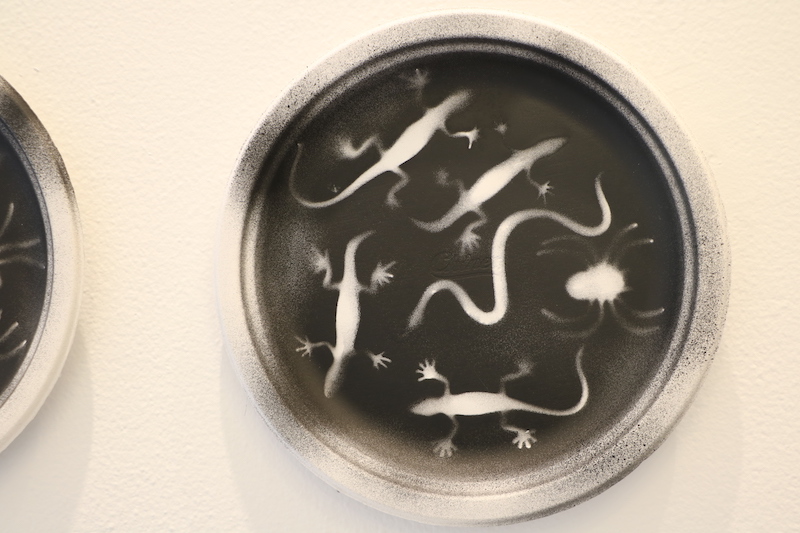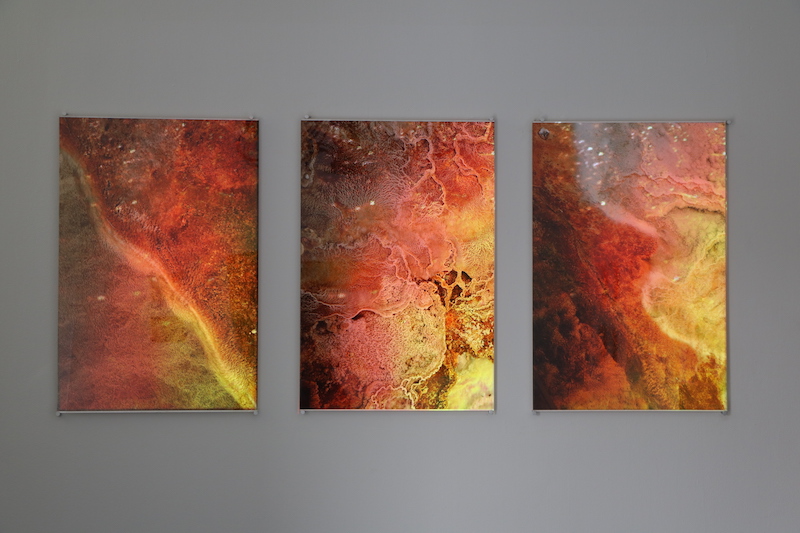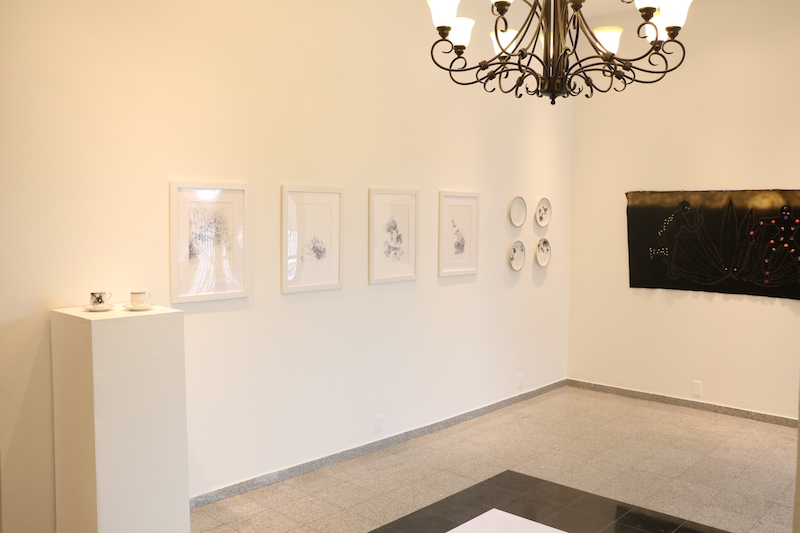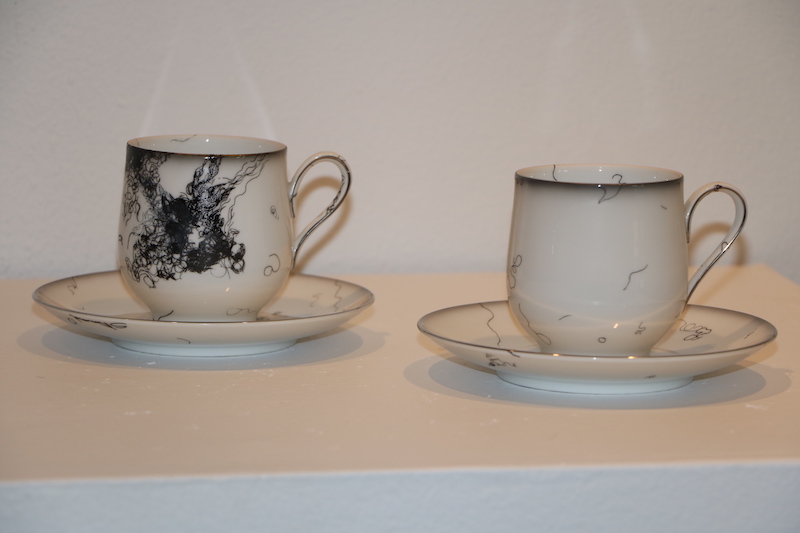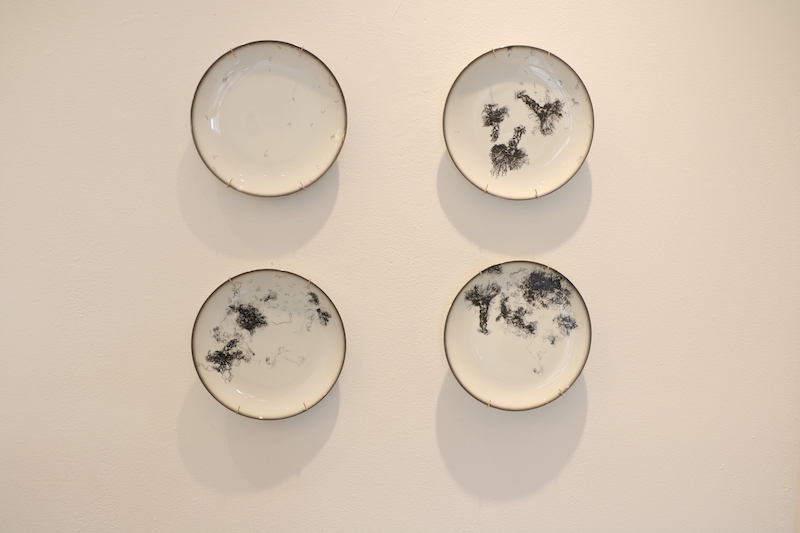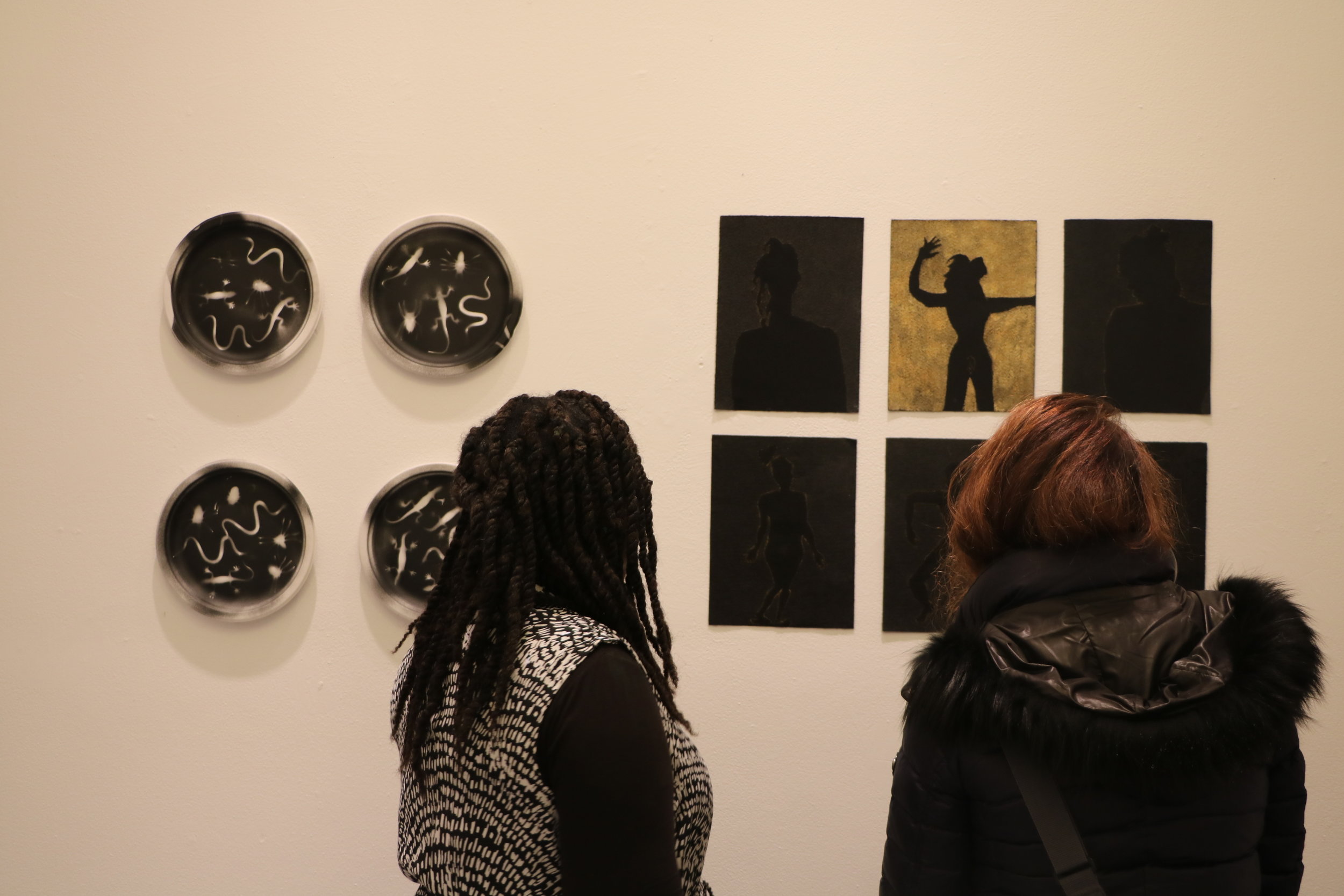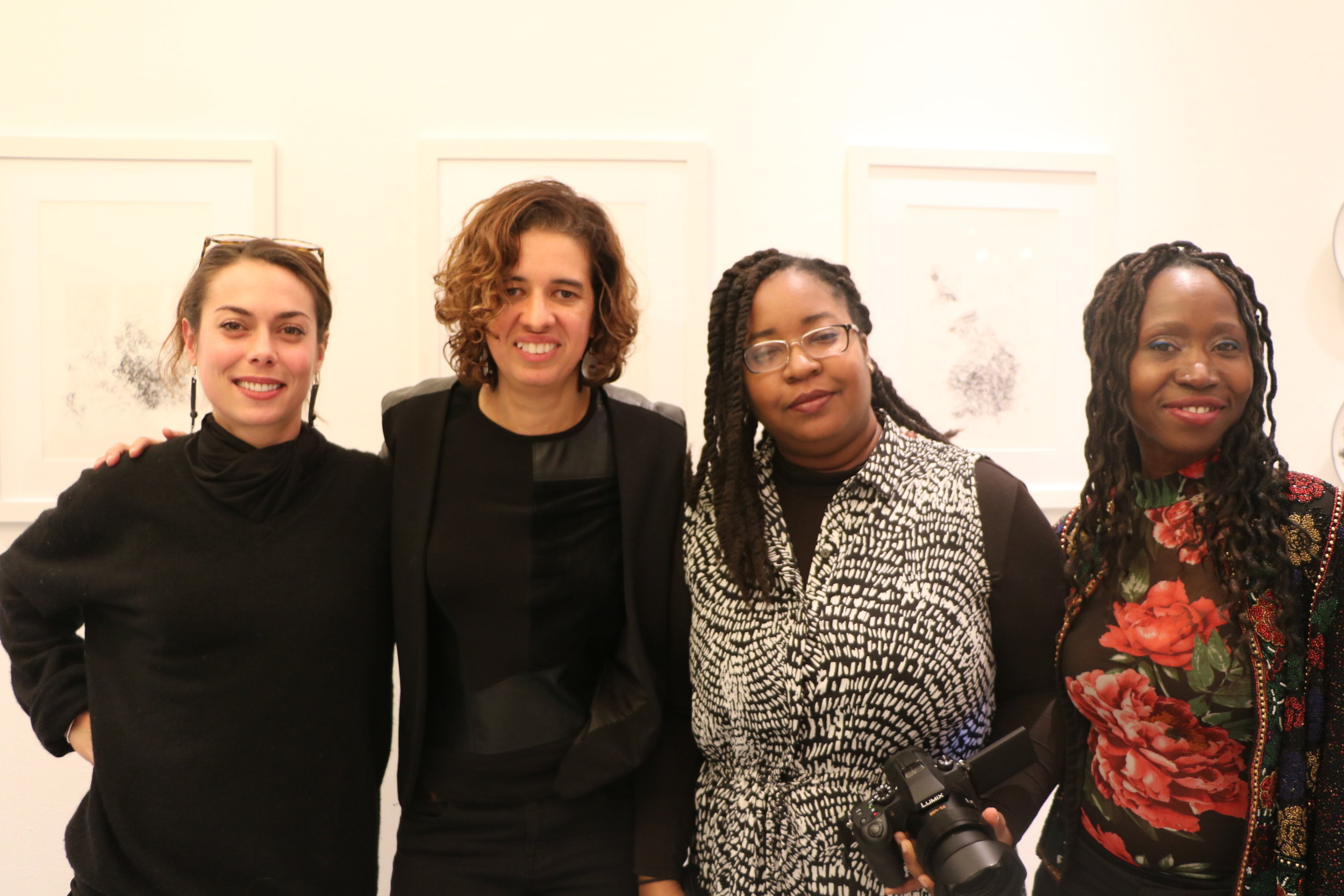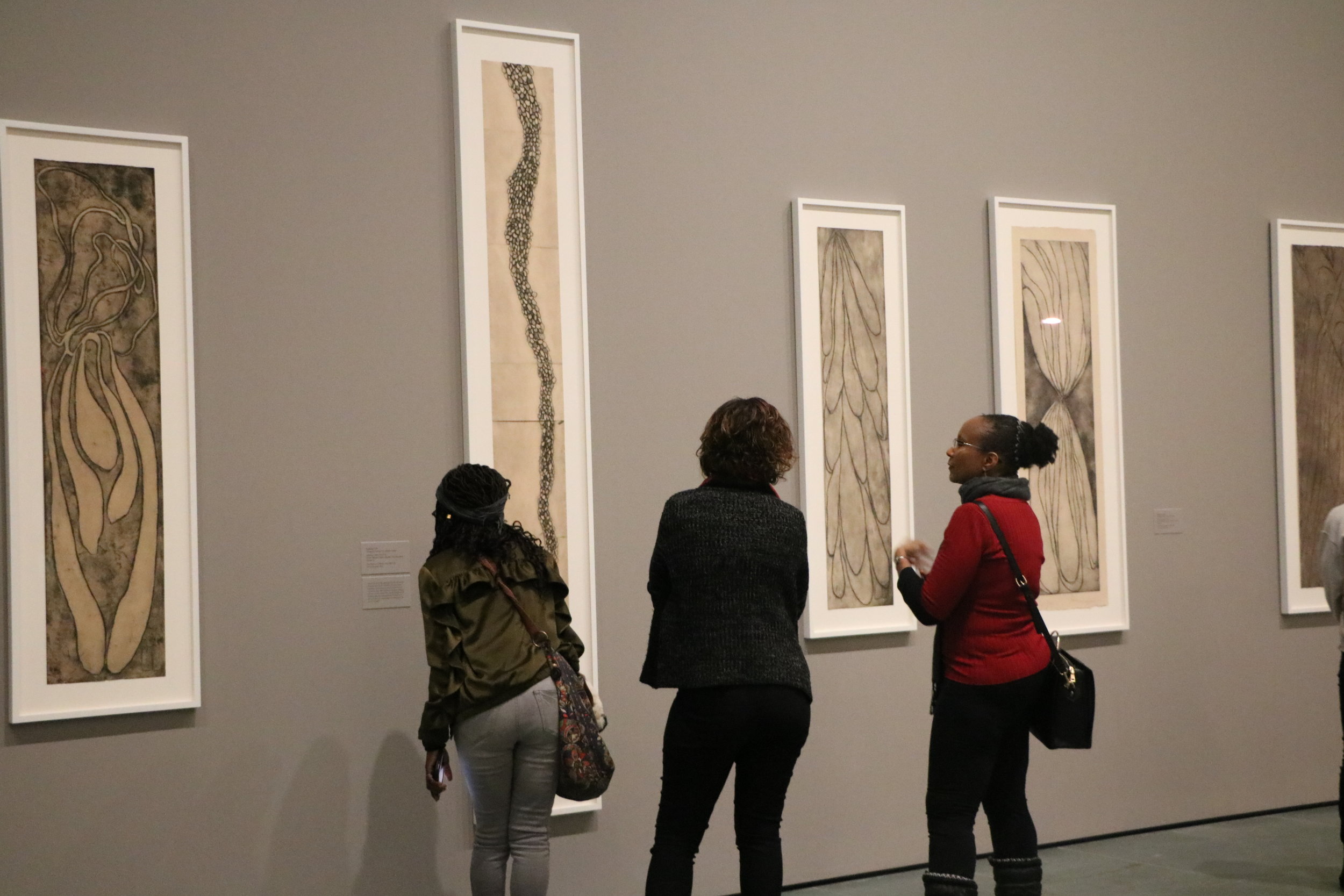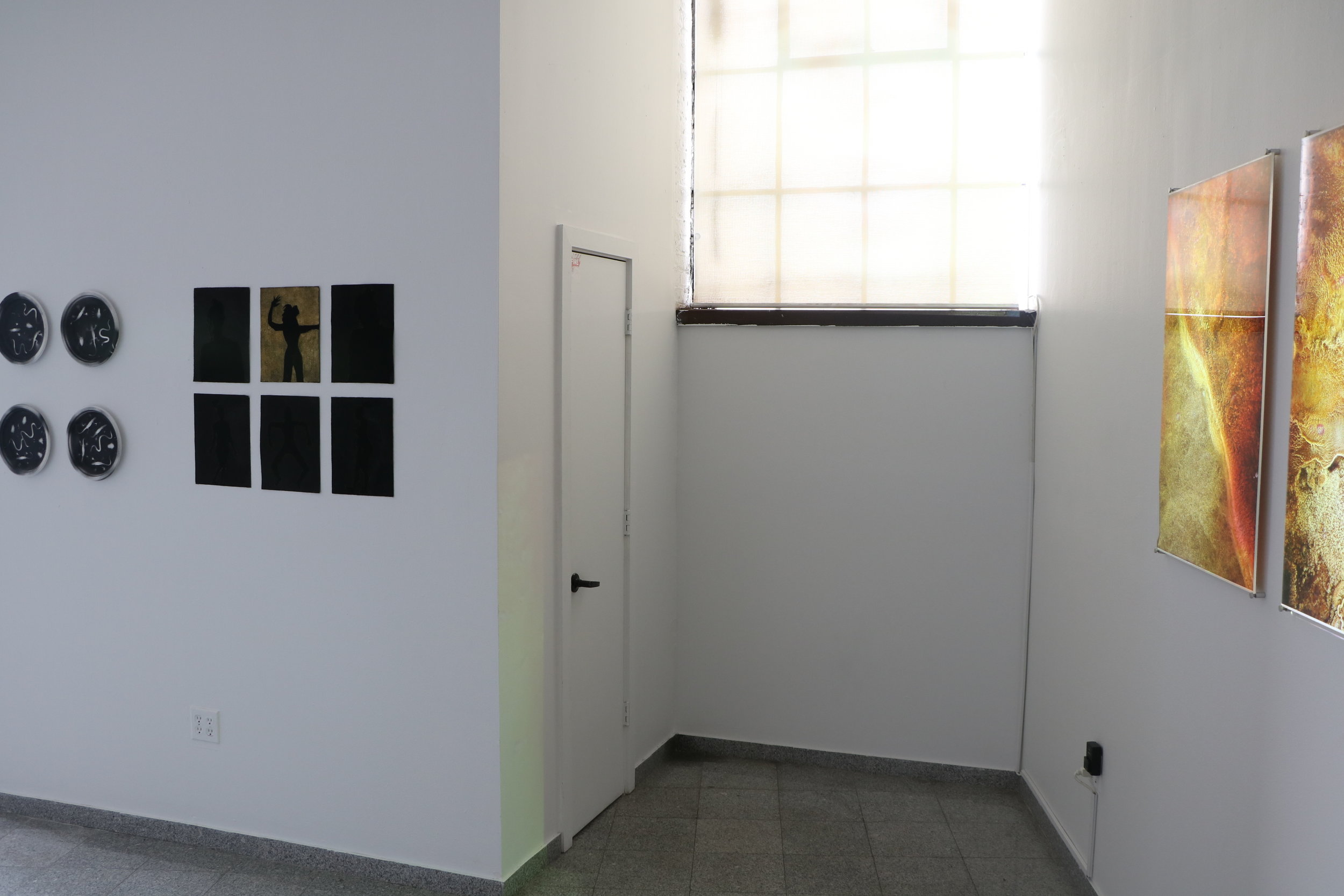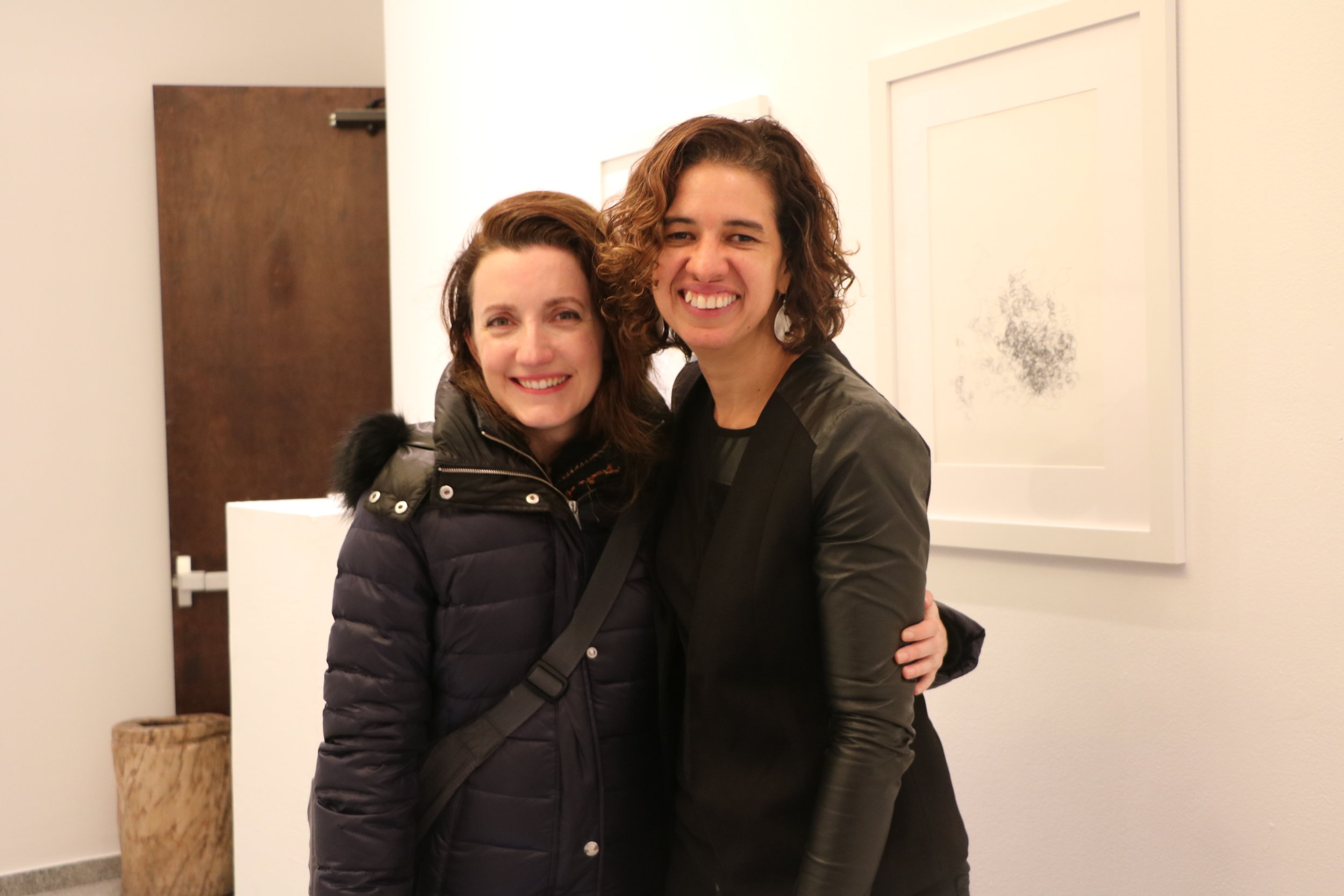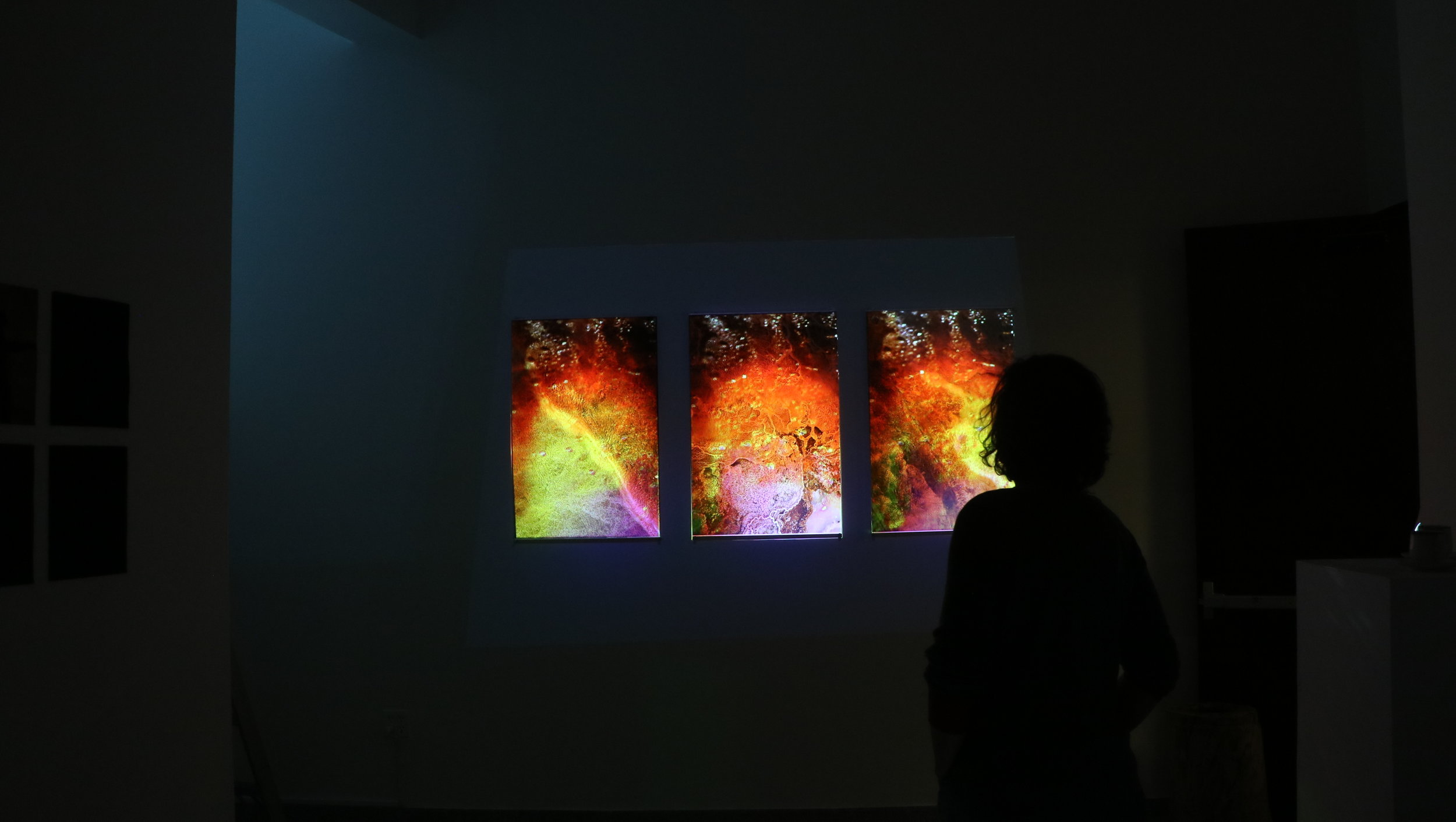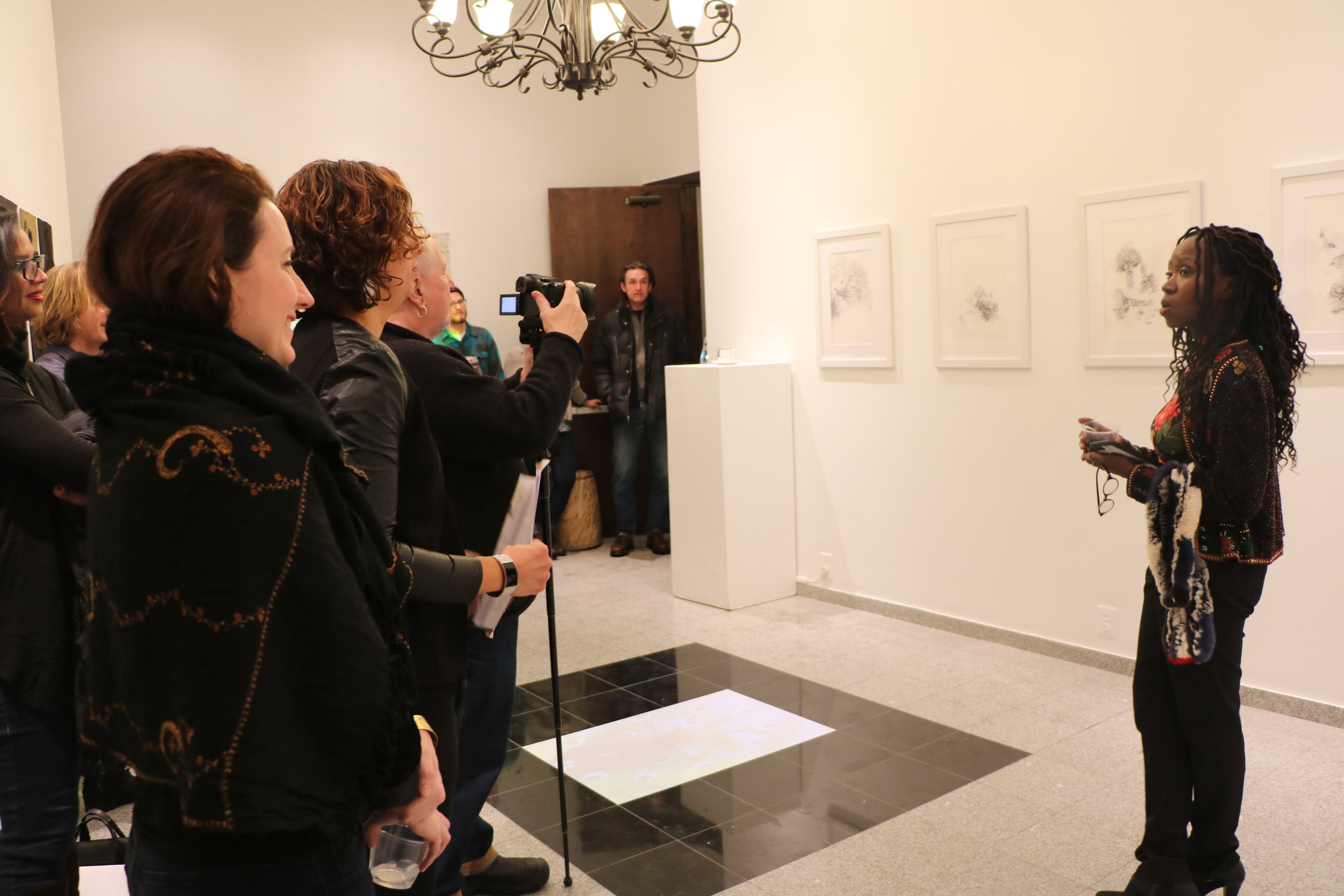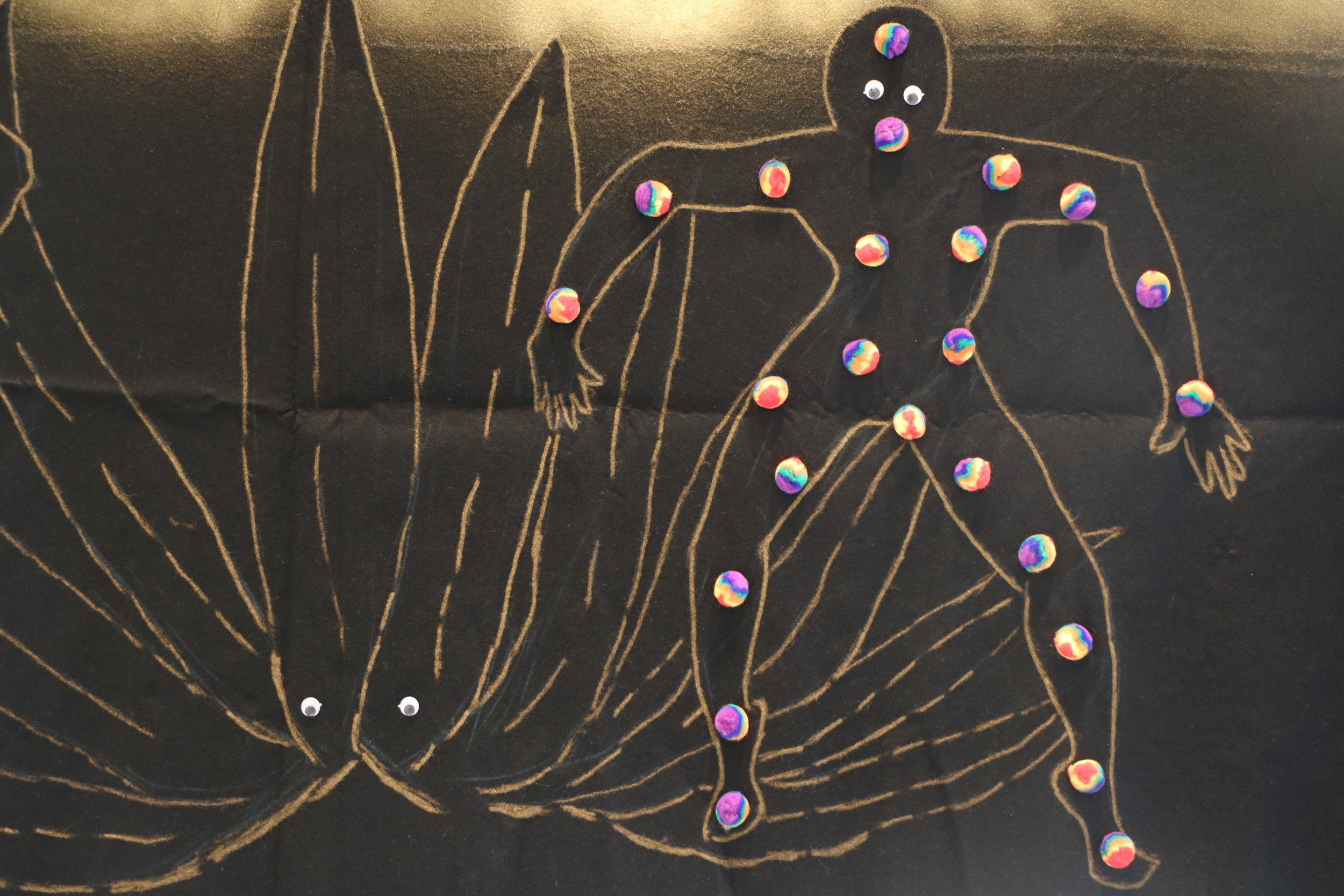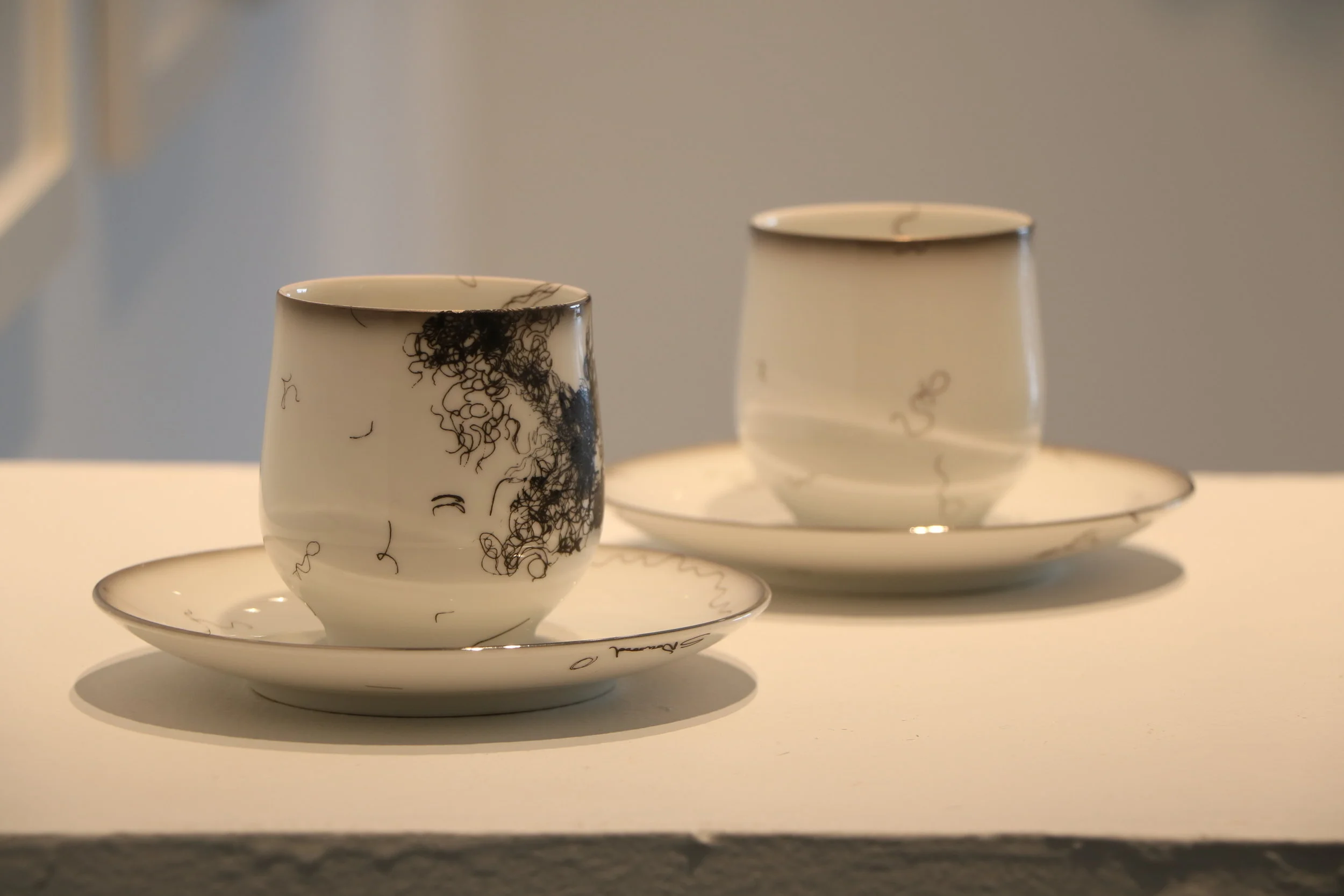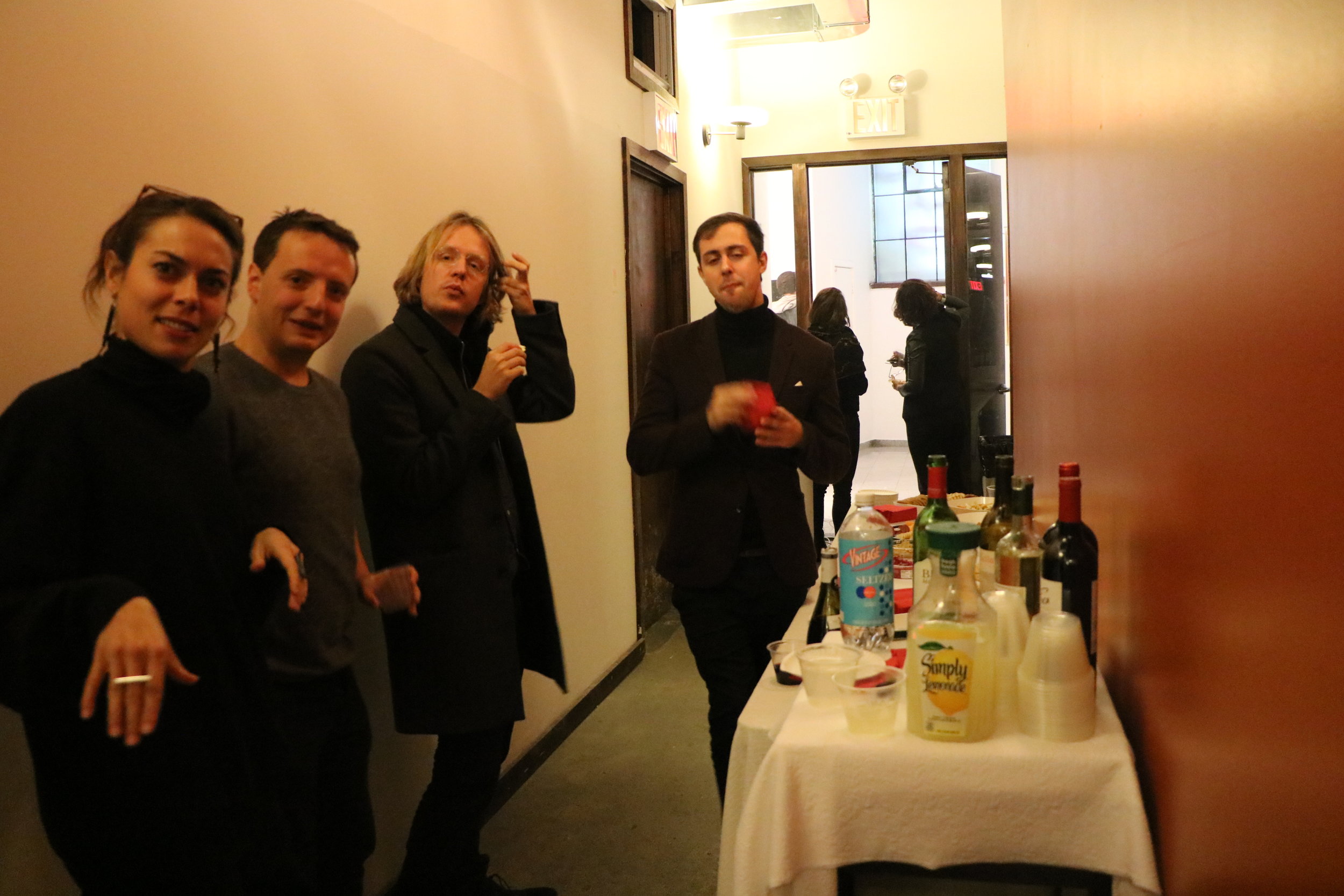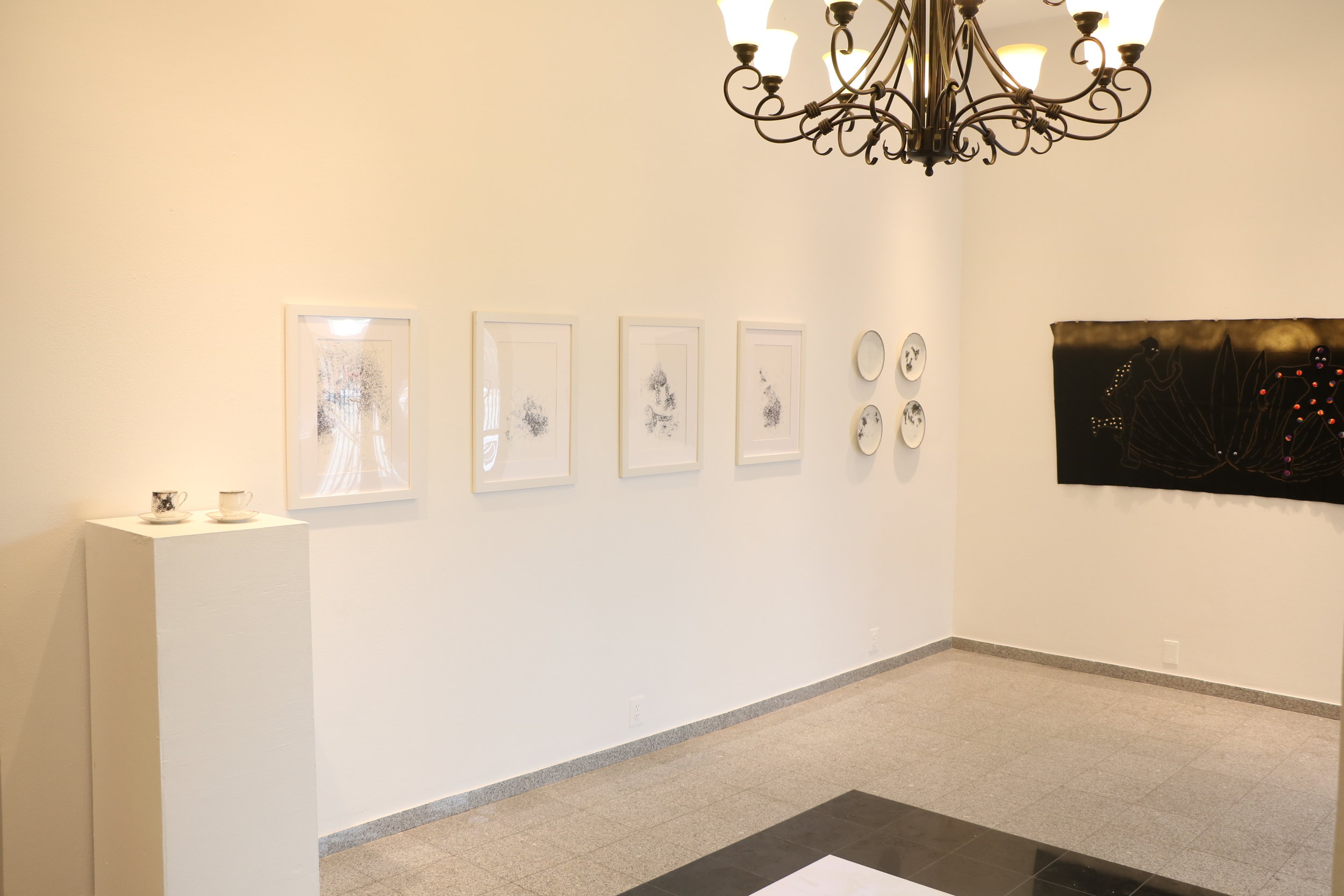ASM : Exchange, 2017
Jamaica & Marie-Galante, Guadeloupe
to New York City
Surface Traces
Yashar Gallery, Brooklyn, NY
December 15th - December 30th, 2017
Opening Reception Friday, Dec. 15th, 6 - 8 pm.
Artist talks at 7pm, Philosophy, Art & Drinks to follow.
Yashar Gallery and Art Shape Mammoth, with the generous support of Exhibition Coordinator Stephen Eakin, are pleased to host SURFACE TRACES with Sharon Norwood, Oneika Russell and Jeanne Proust in collaboration with Sandra Stephens.
This exhibition explores the relation of the trace to the surface. A trace can be seen as a residual mark left over in time, not immediately discernible, or an outline that follows a fixed path. It can also be a conceptual tool used to interrogate the other within the self. Each of the artists approaches this concept of the trace in terms of one or more of these various definitions, while all connect to the ways the trace relates to history, time and memory. With connections to the post-colonial Caribbean, since three of the artists were born, live or have ancestry from Jamaica while one was born in Marie-Galante, Guadeloupe, all four play with notions of hybridity and unfixed notions of subjectivity to visually push this concept of the trace of the body on the surface and within its environments.
Sharon Norwood is interested in what happens when the body inscribed within racial languages gets abstracted to a line? In her drawings and ceramic work, she emphasizes the notion of hair as landscape. Abstracting a meandering contradictory “kinky” line that is at times calm, confused and overwhelmed, separated, detached, Norwood’s line also reaches for connections. What happens when this kinky line “corrupts” the purity of the porcelain surface? As Norwood states, “porcelain has long been revered as a highbrow material; Hitler admired and equated it to “perfection,” and likened it to racial purity. I was inspired to subvert this supremacist narrative that is at odds with my own sense of identity”. Norwood continues, “the repetitive, meditative marks allow time for self-reflection and create an objective lens, allowing me distance and space to reflect on the natural curls that are my hair. The simple line reveals itself and becomes beautiful, void of the negative outside narrative”. Norwood’s visual imagination reveals the trace beyond the limited racial languages used to construct our worlds and deconstructs those cultural narratives to speak in nuanced ways about gender, beauty, race and class.
Oneika Russell, Notes to You
Wall installation (22 handwritten lacerate printed notecards), approx. 5"x7" each, 2016
Oneika Russell similarly engages with the imaginary world and the world of childlike play: “as children we learn from play and I feel this is still important in my artistic practice. It is how I learn about my own prejudices and am able to get inside the issues I am dealing with”. Russell uses reoccurring figures to suggest stories from the Western psyche but filtered through her experience as a Jamaican. The work for SURFACE TRACES are drawings using a collaged aesthetic with mixed media on paper and fabric. “I seek to create a new narrative from old stories... environments in which these characters construct their narratives are often taken from locations with idealized associations such as botanical gardens, parks and the seaside”. Russell uses trace elements to mark the body, implicate the body within play while embellishing it to create an intimate connection between the real and the imaginary, inner and outer worlds and the body and landscape.
In this first major collaboration between Jeanne Proust & Sandra Stephens they also engage the world of play. They foreground the concepts of body as landscape and landscape as body to pose the question of traces that exist beyond the surface. Using photography, video installations and superimpositions they confuse the boundaries between inner and outer worlds. In a poem for their piece “Breathing Skins”, Proust defines the skin as a “porous envelope” that can be exhausted from the “outside in” with “peeling traces” and “layers of memories deposited”. This porous surface layer can be seen as simultaneously blocking while intimately feeling the energy and environment it belongs to. Stephens states, “who we are is influenced by what is around us. We constantly change through a dialogue between the self and the outside world. Visually I see this shifting self as a möbius strip with no distinct inside or outside”.
This is the second time Oneika Russell and Sandra Stephens have exhibited together. Their first exhibition “Shifting Representations of Color” showed inventive animations, video installations and drawings. The artists looked at the use of color to separate people and how this use can be shifted in various ways. This show was the kick off exhibition for conversationXchange a series of exhibitions (facilitated by new media technologies and the virtual landscape) with the purpose of providing a space for cultural exchange, groundbreaking art and conversations between Caribbean and Caribbean diasporic artists about and through their work. The shows also provide new ways of thinking about how identities are being formed and re-formed by globalization. The second in the series “The Universal Black Body” featured Camille Chedda and Andrés Montalván Cuéllar and explored bodies and their connections to nebulous terms such as the "universal". They are excited to be working with Sharon Norwood and Jeanne Proust for, Surface Traces, this third extension show for conversationXchange, a collaboration with Tide Rising Art Projects and Art Shape Mammoth.
ARTIST BIOS
Sharon Norwood is an artist of Jamaican ancestry. She obtained a BFA in painting from the University of South Florida and is currently a 2018 MFA candidate at Florida State University. Her work spans several mediums including painting and ceramics and has been exhibited in the United States, Canada, Jamaica and Germany. Noted achievements include an artist presentation at the Museum of Fine Arts in St. Petersburg Florida, an Emerging artist recognition at the 2016 Raymond James Gasparilla Festival of the Arts, a best emerging artist recognition at Creative Loafing in Tampa Bay and participation at the National Gallery of Jamaica’s 2012 and 2017 Biennial, the 2016 Atlanta Biennial and the NCECA’s 2016 juried student exhibition.
Oneika Russell attended the Edna Manley College in Kingston, Jamaica where she completed a diploma in the Painting Department. In 2003 she left for studies at Goldsmiths College in London in the Centre for Cultural Studies. While at Goldsmiths, Russell began to integrate her interests in combining the practice of Painting with New Media. Later post-grad studies at Kyoto Seika University in Japan furthered the interest in hand-craft and technological meeting points in service of explorations of history, culture and social narratives. Characters and stories formed the basis of much of her earlier work. Many of the narratives were imaginings, re-inventions and re-readings inspired by experience and locations as well as romanticized memories from literature, cartoons, picture books and fairy tales, magazines and other media. Her current work increasingly involves installation which uses sound, drawing video, prints, books and objects to reclaim and assemble fragmented experiences and thought together.
Jeanne Proust was born in Marie-Galante, Guadeloupe and grew up in La Rochelle, France. Proust has studied Visual Arts and Philosophy in Bordeaux, Berlin, and Paris. Her research focuses on Théodule Ribot’s Diseases of the Will, from both philosophical and psychological perspectives. She is currently teaching at various universities in New York including NYU, Pace University and Marymount Manhattan College and also teaches through the Think Olio initiative. Proust is advocating for a widening of philosophical education beyond academia’s frontiers by participating in different events open to the general public. She also collaborates with artists on her photography, drawing and painting works and has published and exhibited in France and Miami.
Sandra Stephens was born in Montego Bay, Jamaica and is an Associate Professor in Time and Motion Arts at PrattMWP in Utica, NY where she has also served as Gallery Director. She also teaches in the Social Sciences and Cultural Studies Department at the Pratt Brooklyn campus and is pursuing her PhD at the innovative Institute for Doctoral Studies in the Visual Arts (IDSVA). Stephens creates video and installation works to explore issues related to cultural and individual identity. She has exhibited nationally, throughout museums and galleries in the United States including the Everson
Museum and the Museum of Latin American Art and internationally in various locations including Circulo de Bellas Artes in Madrid, Triennale di Milano in Milan, Centre de Cultura Contemporania in Barcelona and Atelier-Haus/ Galerie ZeitZone in Berlin. She has also curated various shows throughout the United States including “conversationXchange,” a series of exhibitions that create a platform for cultural exchange between artists based in the Caribbean and those within the diaspora; artists present their own work, appropriate each other’s work, and collaborate together. Stephens has taught at Hamilton College, Hunter College, F.I.T. and SVA in Manhattan.
